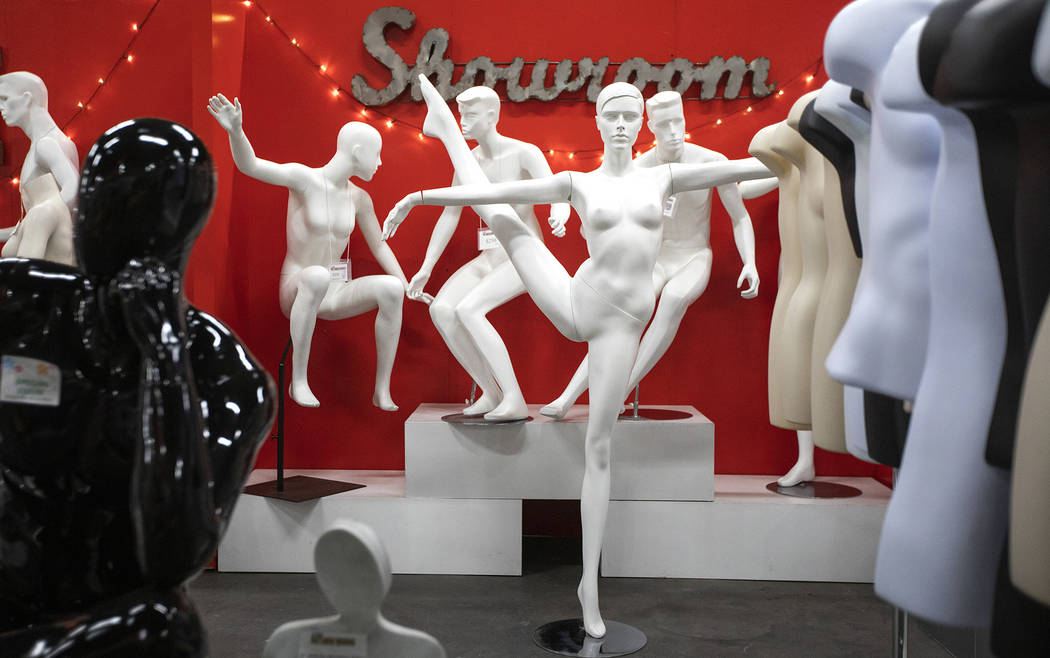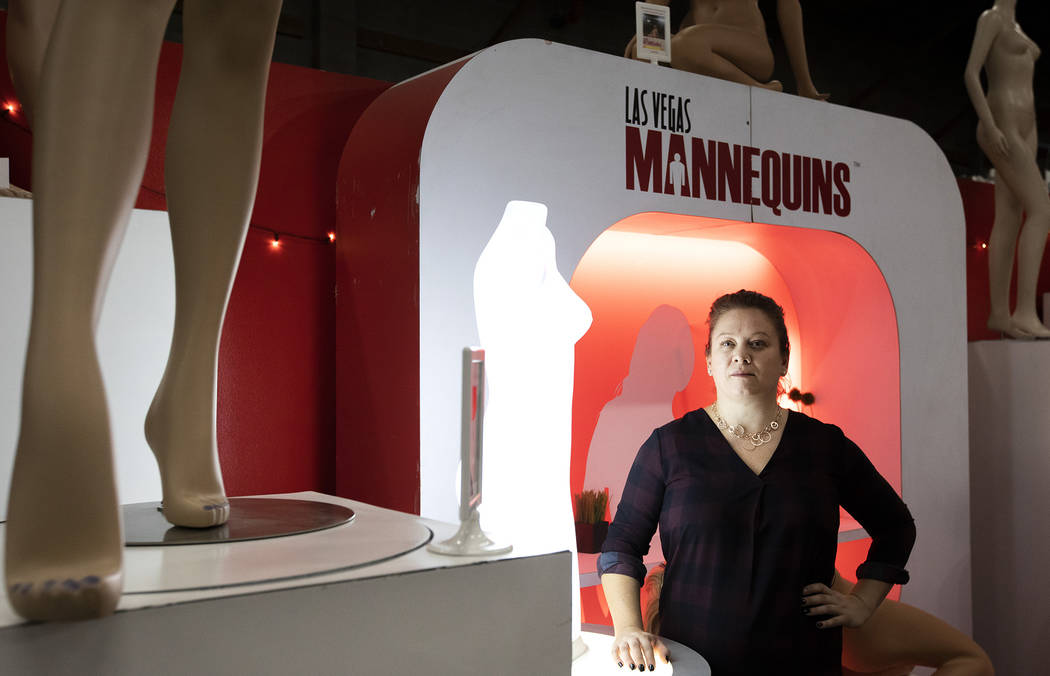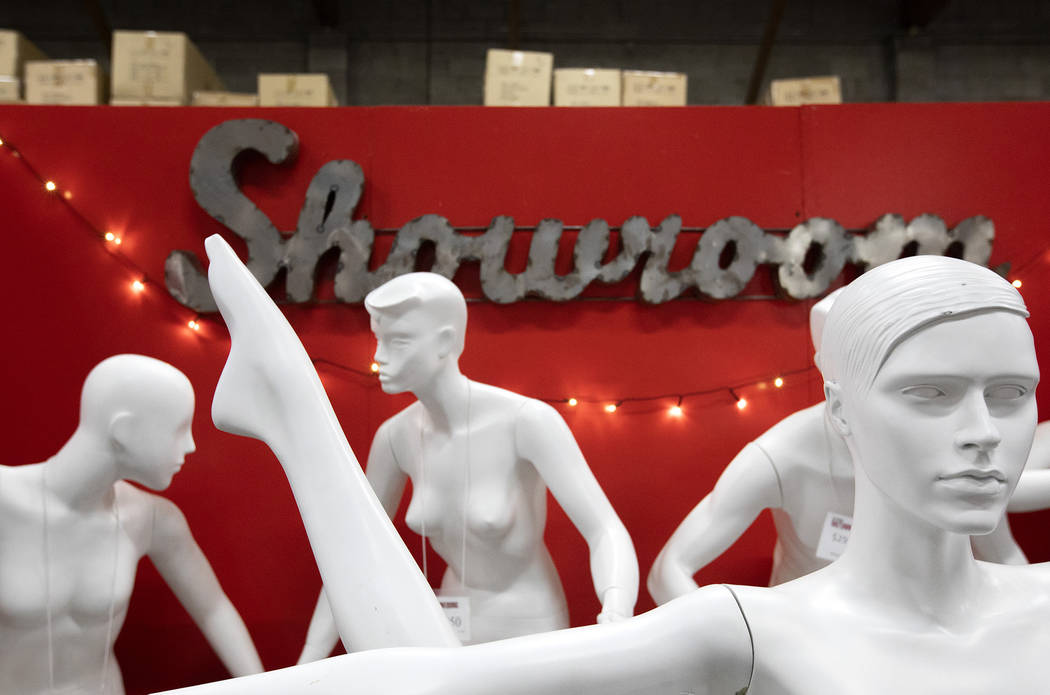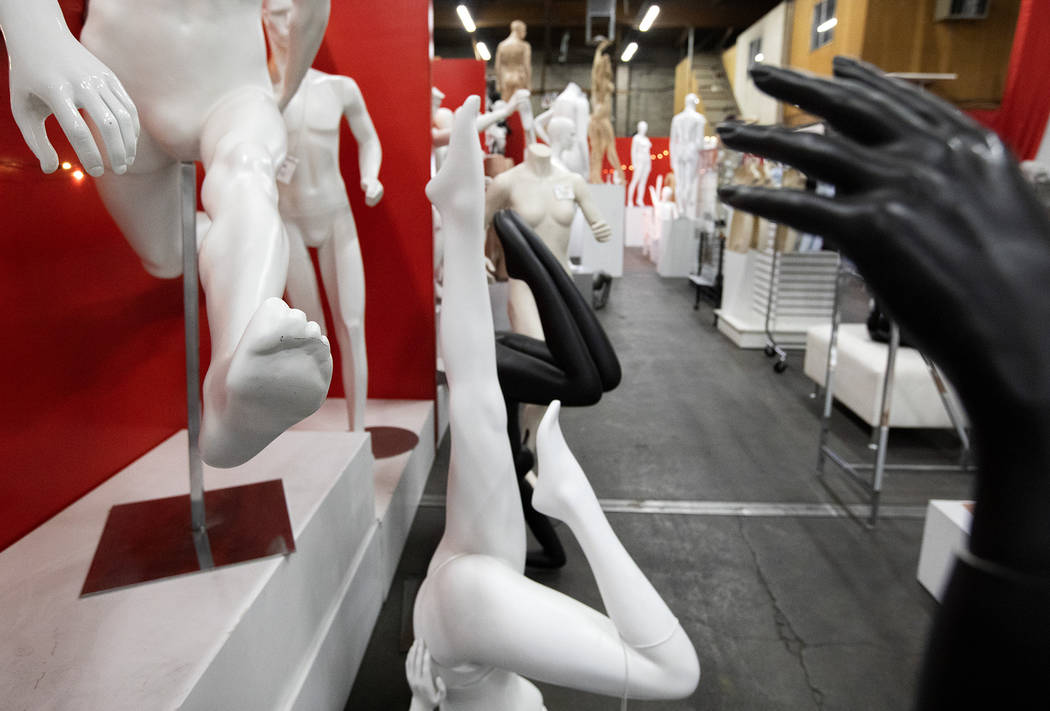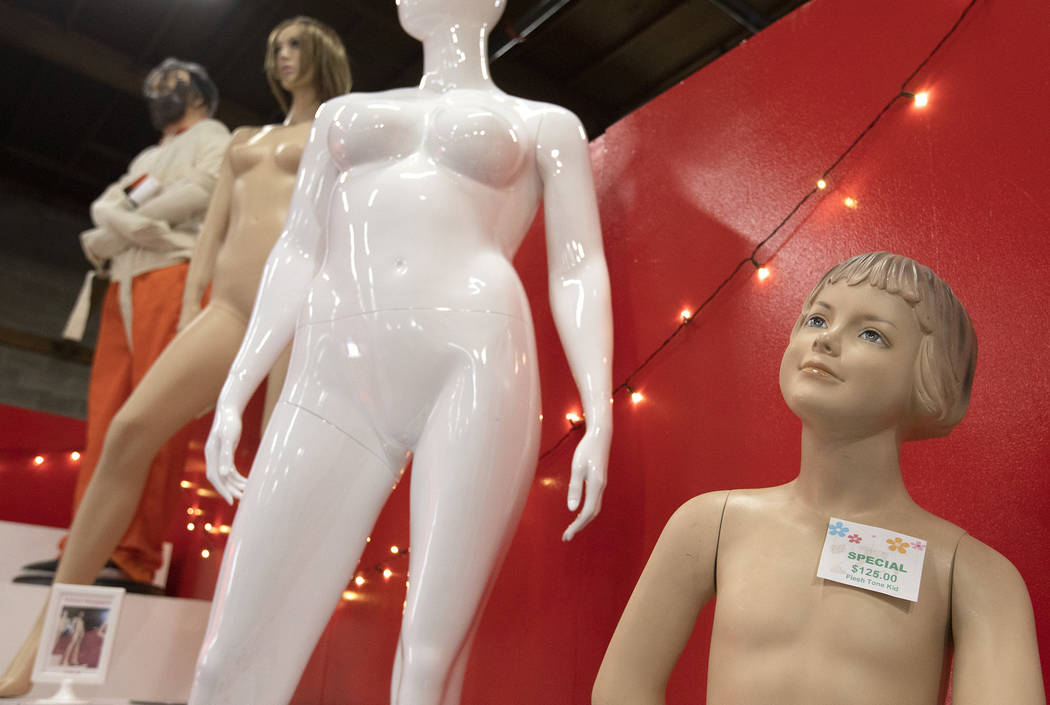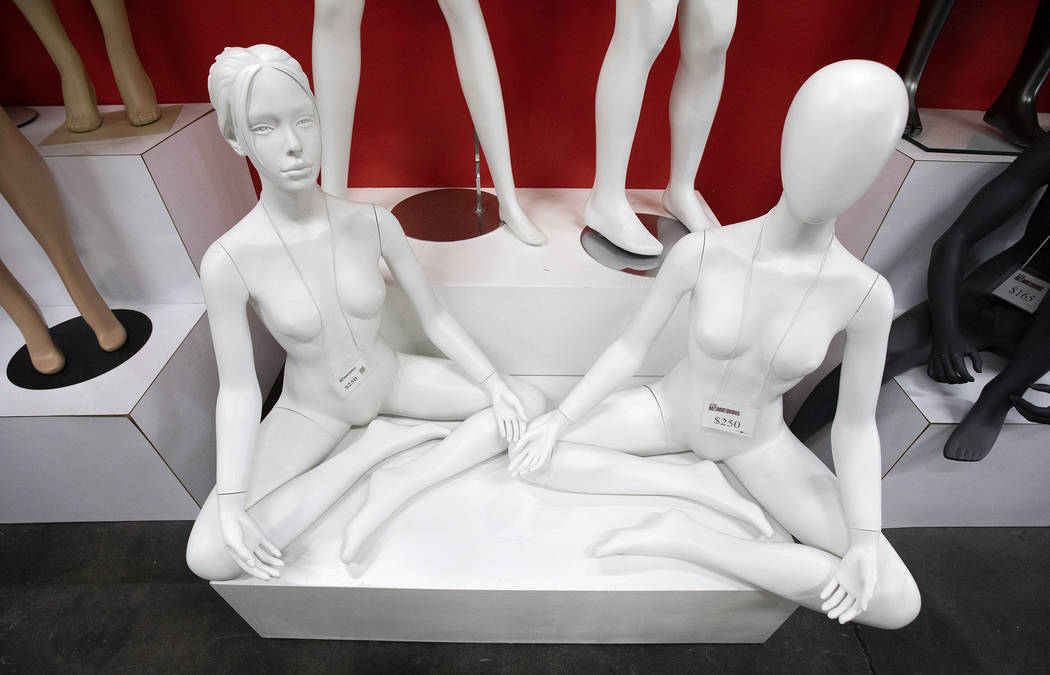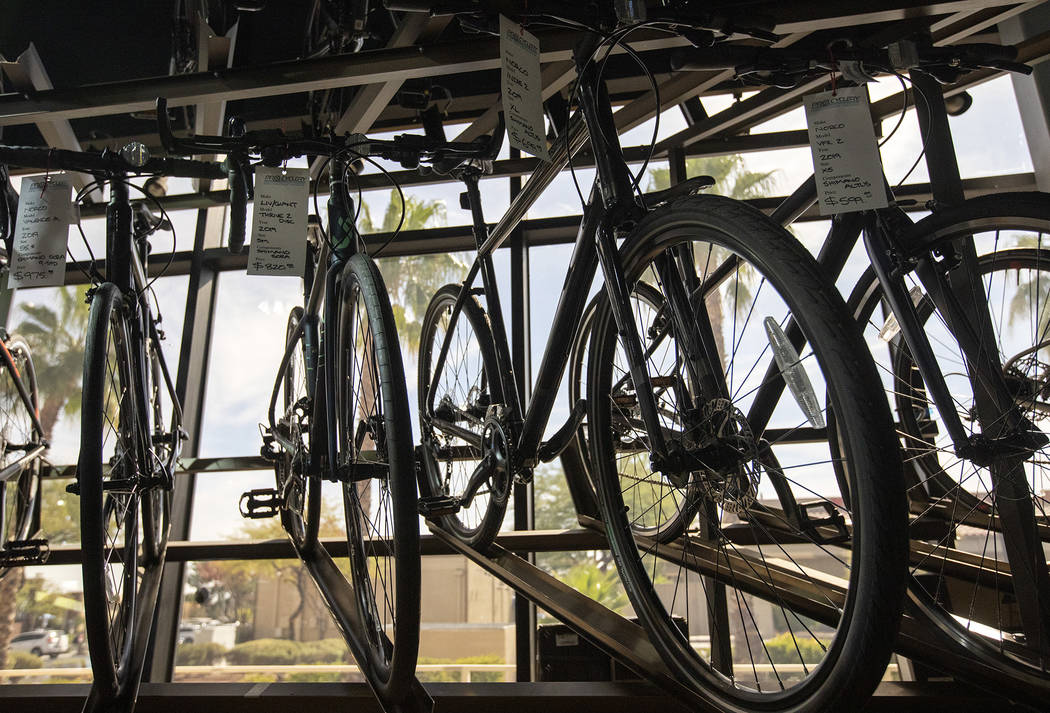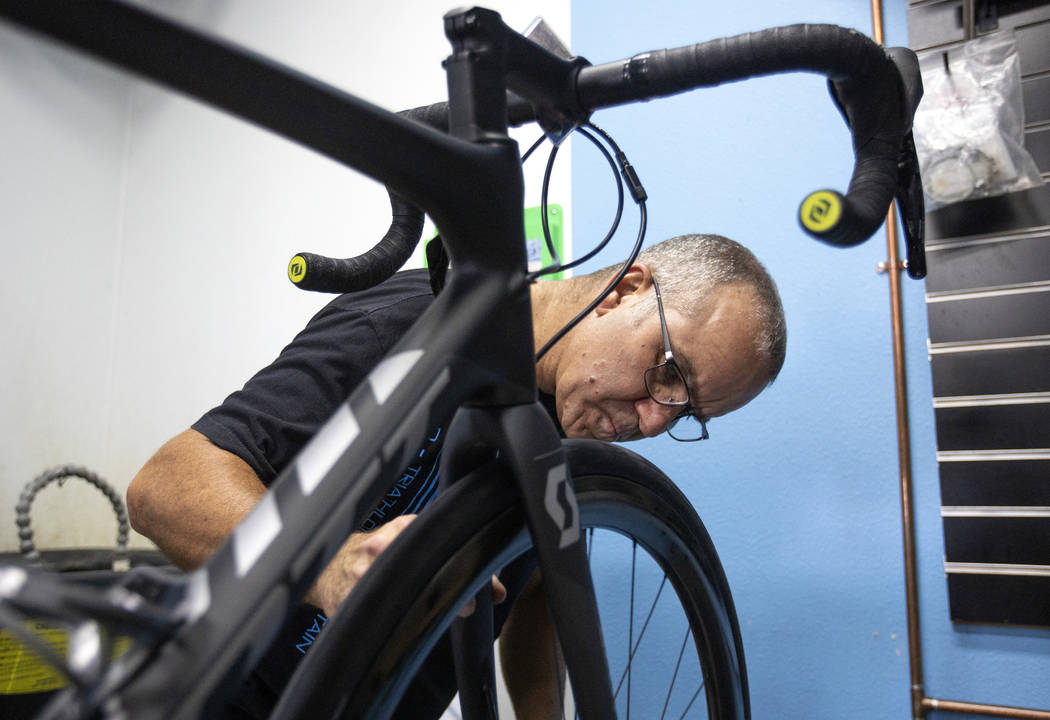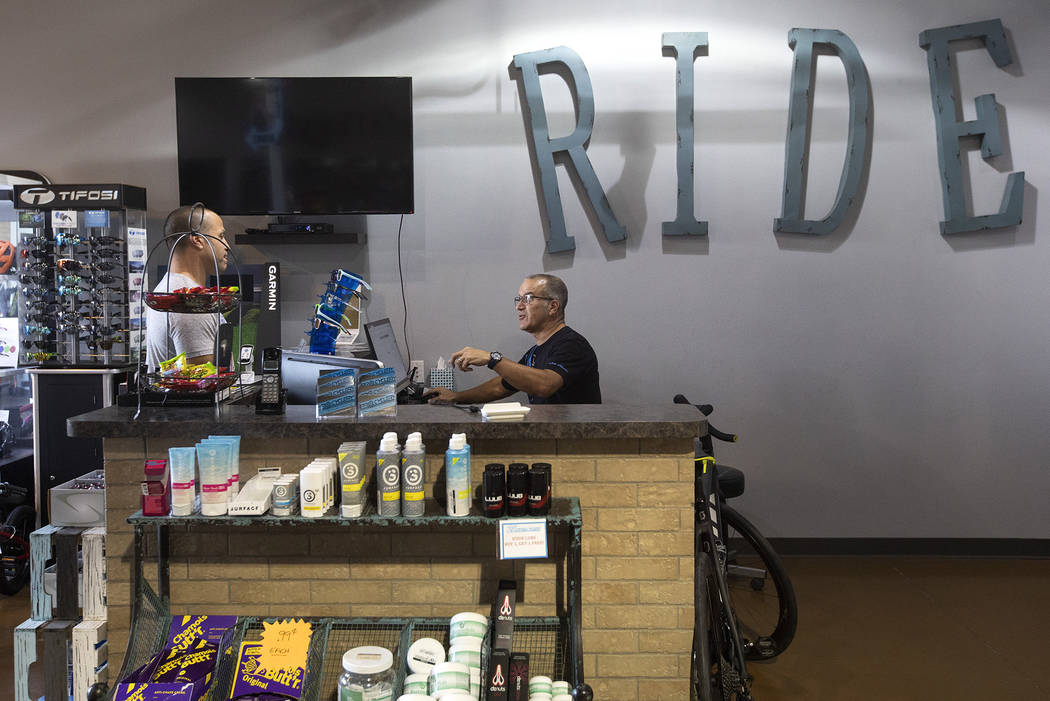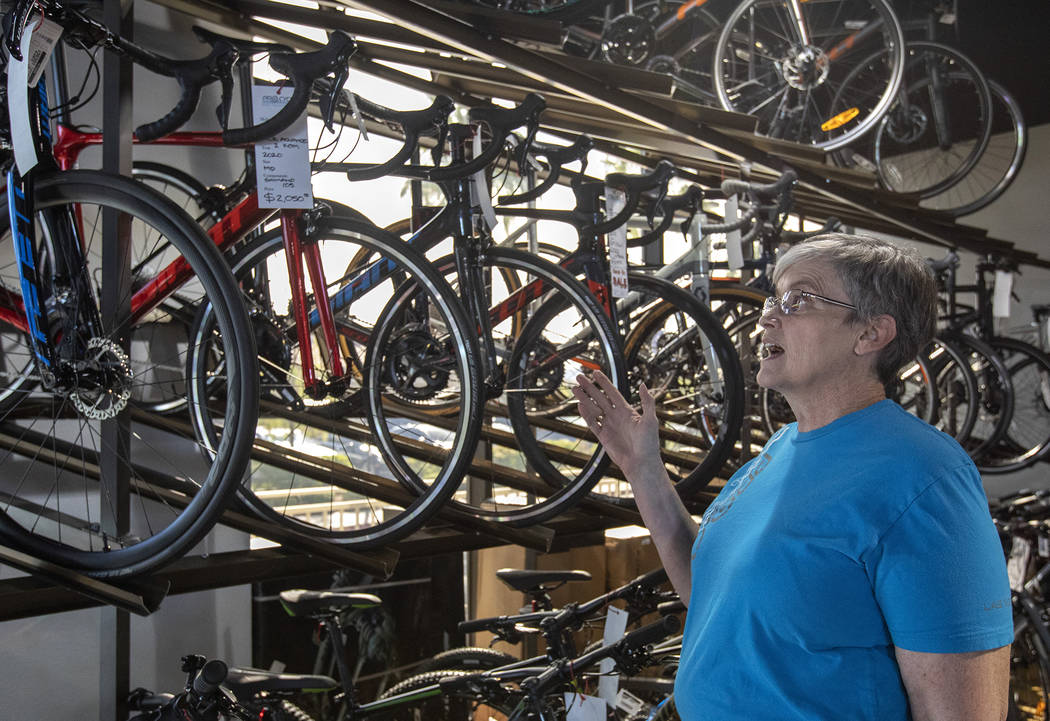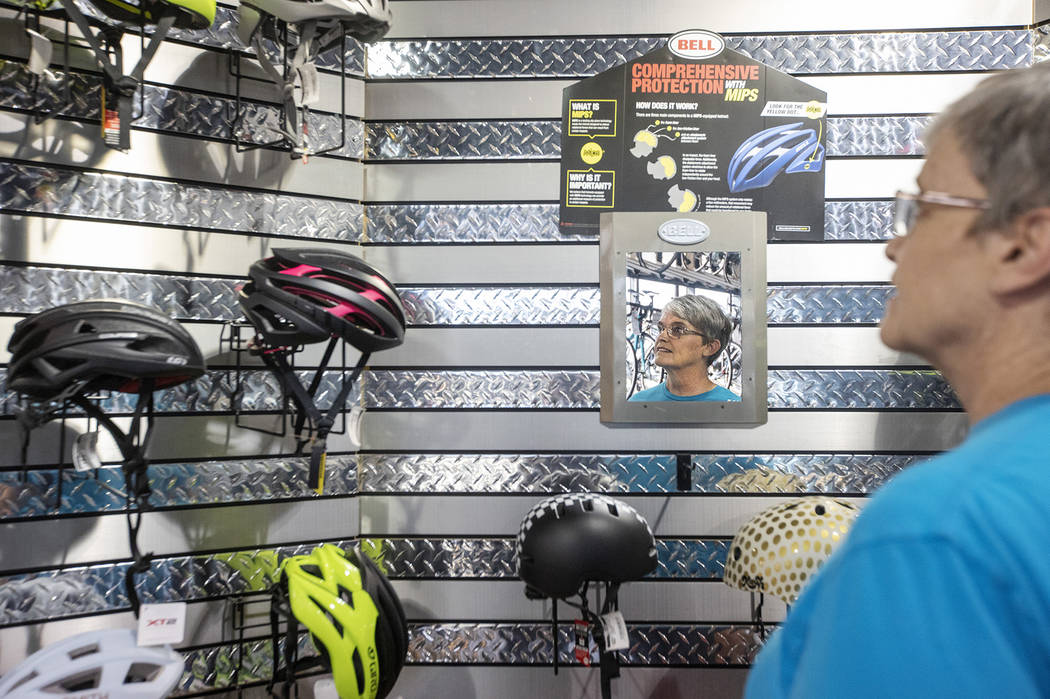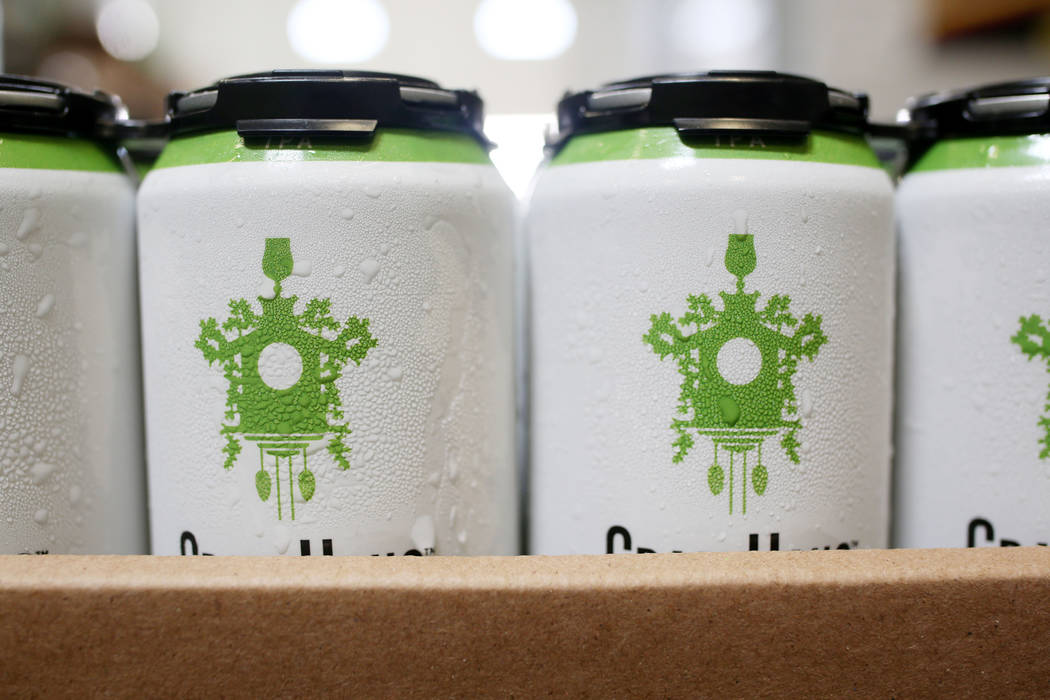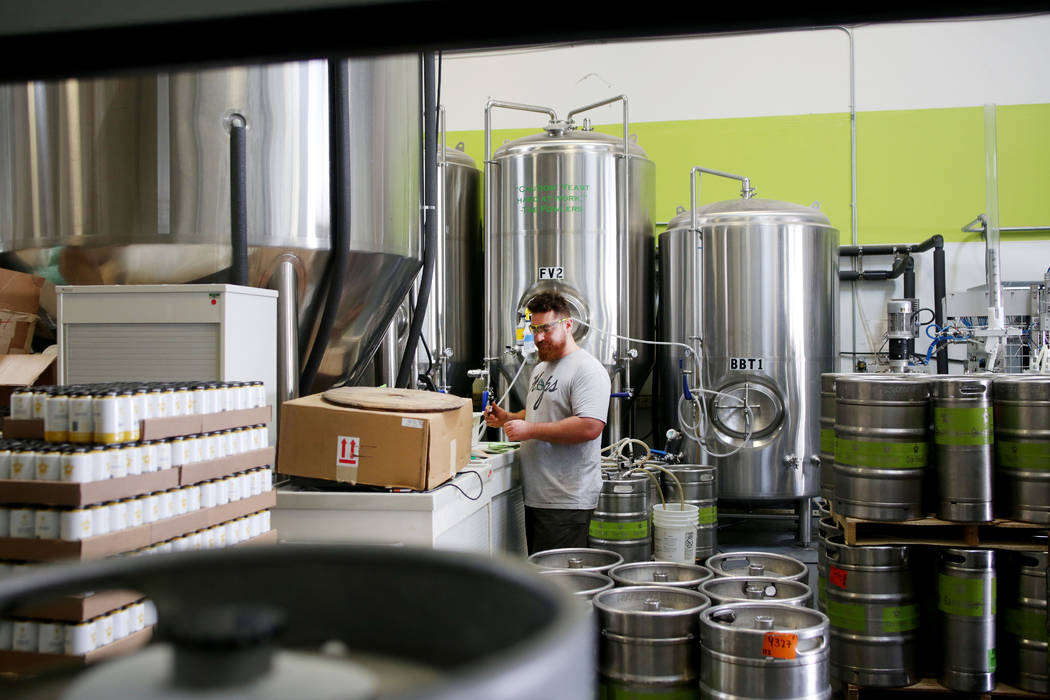Las Vegas Valley businesses grapple with effects of import tariffs
A long-standing joke in the cycling industry has a new twist.
If you want to make a million dollars owning a bike shop start with $2 million — then add 25 percent for import tariffs.
Businesses in Nevada from bike shops to mannequin suppliers are feeling the squeeze after the Trump administration last year began placing a string of import tariffs on Chinese goods.
The latest set kicked in Sept. 1, and the next round of 15 percent on $160 billion worth of Chinese goods is slated for Dec. 15.
Cheri Tillman, co-owner of Las Vegas-based Pro Cyclery, said the bike shop joke rings true, but her business is facing additional headwinds from import tariffs.
“As soon as the tariffs were announced, the bike companies let us know they would have to start increasing (prices) so it was pretty immediate,” Tillman said. “(If) our prices go up, our prices to our customers go up.”
Tillman, who owns the business with her husband, Mike, said customers are paying between 10 and 15 percent more for its road and mountain bikes, the same percentage jump they’ve had to pay suppliers.
“The bike manufacturers set the prices we charge. It’s not like all of a sudden we’re getting wealthier,” she said. “Our customers know the prices are going up because of the tariffs, especially the experienced cyclists who aren’t buying their first bike — they know how the industry works.”
‘A vicious circle’
Analysts have said American consumers will pay the price because companies will be forced to pass along the expenses such as an extra $4.4 billion on apparel and $711 million more for a television, according to a June study by the Trade Partnership for the National Retail Federation. But with only one month into the latest round of tariffs on consumer goods, any impact on a shopper’s wallet has yet to be fully felt. For now, suppliers and companies such as CraftHaus Brewery in Henderson have been forced to absorb increased costs as a result of tariffs.
CraftHaus co-owner Wyndee Forrest said their aluminum can suppliers increased prices by 2 cents per can, a big leap for a brewery filling two pallets, or about 9,000 cans, each week.
The issue was compounded when two of its aluminum can suppliers required the brewery to start paying a 50 percent deposit when placing an order instead of the industry norm of a net 30-day payment term.
“The supplier can charge us to offset (their costs), but we can’t charge our wholesaler because our prices are locked in so we had to absorb that expense (but) we need more capital upfront to place orders for the cans,” Forrest said. “It’s all a vicious circle.”
Tariffs also led to a national shortage of aluminum cans, said Forrest, as companies with more clout quickly stocked up to avoid additional sourcing costs, leaving smaller breweries like CraftHaus waiting twice as long to receive their cans.
“Craft beer is a perishable item so you have beer sitting in a tank that needs to be packaged and it can’t,” Forrest said. “Now, your beer is running up against quality issues and tying up that tank where you had production plans to fill it with another beer. It slowed our production down (and) put a strain on us with having capital available sooner than we typically were used to.”
Made in China
The Trump administration levied a 25 percent tax hike on $250 billion worth of Chinese goods such as imported steel and cycling equipment early last year while the remaining $300 billion of Chinese goods, mainly consumer products, were taxed this year at 15 percent in two phases, on Sept. 1 and Dec. 15.
The extensive list of products subject to an import tax touches nearly every industry and highlights America’s dependence on China. A sampling of items on the tariff list: livestock, orchids, green tea, textiles, works of art and photographs, drinking glasses, wigs, fish hooks, ballpoint pens, baby strollers, musical instruments, cash registers, Christmas ornaments, toys, cigarette lighters, wooden cigar boxes, clothing and footwear.
Concerns over China’s “economic aggression” and policies on intellectual property and technology pushed the Trump administration to establish import tariffs under decades-old trade statutes, according to a June report from the Congressional Research Service.
President Trump said on Oct. 11 that the U.S. came to a “very substantial phase one deal” with China that would be written in the next three to five weeks, addressing intellectual property and financial services concerns. Those talks led the administration to stop a planned tariff increase of 30 percent, up from the existing 25 percent on $250 billion of Chinese goods, that would have taken effect Oct. 15.
Kristen Smith, who leads law firm Sandler, Travis & Rosenberg P.A.’s Trade Remedies Practice, said U.S. manufacturers face a lot of risk when doing business in China.
“I think a lot of them are happy that the government is taking a step and doing something, but at the same time it’s really hurting them,” she said, adding that many of the firm’s clients, particularly small manufacturers, are having difficulty staying in business and have had to lay off employees with others considering going out of business.
“What we’re seeing is that it’s kind of across the board hurting companies … it’s just maybe a little too broad and impacting too many people for things that aren’t made here,” Smith said.
Day by day
The administration has already walked back several items on the tariff list and as of earlier this month, offering importers of certain goods retroactive refunds from July 2018. That’s because U.S. companies have been allowed to submit exclusion requests, where they must cite why they’re unable to find a comparable item outside of China or explain why it’s cost-prohibitive to do so.
Veteran bike analyst and founding partner of micromobility consulting firm Human Powered Solutions Jay Townley said it’s too late to prevent any tariff hikes from moving through the supply chain to the consumer, especially in the cycling industry.
“The general public doesn’t understand the tariffs the administration is applying are punitive — that means on top of what already existed,” he said. “By the time you add everything up for a bike, these tariffs are hitting amounts (of) 40 percent. Trek Bicycle, importers like Dorel and their divisions — they’re all paying duties as these goods come into the ports, and not passing them on (to the consumer) is going to be less of an option.”
Efforts have been made to curb the financial impact consumers would face by Arkansas Sen. Tom Cotton, who introduced the Tariff Rebate Act last month that would use tariff money, collected from American businesses, to give rebates to residents in the three lowest tax brackets.
U.S. Customs and Border Protection collect import duties from companies and the funds make their way to the U.S. Treasury. As of September 19, funds collected by U.S. Customs as a result of the administration’s import tariffs is at least $38.9 billion, according to a release from Cotton’s office.
While companies navigate through the complexity of the administration’s tariff policies, local businesses say they are taking it day by day.
Tillman said the bike shop will carry less inventory and focus on higher-end and custom merchandise while Forrest said CraftHaus is placing more product into kegs and reducing how much it cans.
Alison Wainwright, founder and chief executive of retail fixtures and mannequin supplier Las Vegas Mannequins, said she’s waiting things out.
“I’ve been absorbing the costs because our competitors have not passed anything along,” she said. “I’m kind of waiting things out and seeing what’s happening for now.”
This means Wainright’s shipment of mannequins, subject to an import tax, will remain in China for now.
She imports about 400 mannequins each quarter, but with the recent import tariffs she’s stopped new shipments as her costs climbed about 20 percent.
“It’s been significant enough that I have a half-finished container sitting in China,” she said. “At first, I thought maybe it’s not that big of a deal, depending on what type of material is on the (tariff) list, but it got to the point now where we’re just trying to sell what we got in the building and order wholesale from other importers.”
Contact Subrina Hudson at shudson@reviewjournal.com or 702-383-0340. Follow @SubrinaH on Twitter.




